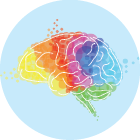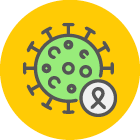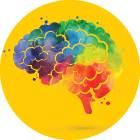When it comes to alcohol and teens, the facts are sobering. Alcohol can actually have long-term consequences, impacting everything from brain health to school performance and future well-being. As a parent or caregiver, staying informed helps you protect your child and set them up for success.
Here’s what the latest research and data reveal about alcohol use among youth.


The good news is that the majority of teens are NOT drinking. But underage drinking does continue to be a concern in our region and continues to be the most commonly used substance among teens. Community surveys and youth behavior reports show that while overall teen alcohol use has declined, a significant number of middle and high school students still report using alcohol in a typical month. Many parents underestimate how often this occurs or the risks associated with it. And while fewer teens may be drinking, those who are often consume high-alcohol products and engage in risky behaviors, including binge drinking, putting their health and safety at even greater risk.
Knowing what’s happening locally can help spark important conversations at home and within your community.

The teen brain continues developing into a person’s mid-20s, especially the parts responsible for decision-making, emotional regulation, and impulse control. Alcohol interferes with that development, which can result in memory problems, poor judgment, and increased risk-taking in the short term, and long-term cognitive impacts in the future – include risk of alcohol use
disorder (addiction) in the long-term.

Alcohol is a factor in a large percentage of teen sexual assaults. It can impair a person’s ability to give or recognize consent, increase vulnerability to being targeted, and reduce their ability to protect themselves or others. Both victims and perpetrators are often under the influence, and many teens are unaware of how serious these risks can be.
Alcohol use is also associated with a higher likelihood of engaging in unprotected sex, having multiple partners, and not using contraception—all of which increase the risk of sexually transmitted diseases (STDs) and unintended pregnancy. According to the CDC, adolescents who drink are more likely to take sexual risks and less likely to use protection consistently.
These outcomes can have long-term emotional, physical, academic, and work consequences. Talking openly with your teen about how alcohol can affect judgment and personal safety is one of the most important ways to help prevent harm.

Even low levels of alcohol use have been linked to an increased risk of several types of cancer, including breast, liver, colon, throat, and esophageal cancer. The earlier drinking begins, the greater the lifetime risk. Research from the National Cancer Institute confirms that alcohol is a known carcinogen and that the risk increases with the amount consumed over time. The American Society of Clinical Oncology also emphasizes that no amount of alcohol is completely safe when it comes to cancer prevention.

Teens who use alcohol are more likely to miss school, perform poorly on tests, and experience learning difficulties. Alcohol affects concentration, memory, and sleep, all of which are critical to academic success. Studies show a strong correlation between substance use and lower GPA.

Alcohol slows reaction time, reduces coordination and endurance, and delays muscle recovery. It can interfere with sleep and hydration, increasing the risk of sports injuries. These effects can last for days, making alcohol especially harmful for student-athletes who need to be mentally and physically sharp.
Sources: NIH, National Strength and Conditioning Association

Teens who begin drinking before age 18 are about four times more likely to develop alcohol dependence later in life than those who wait until age 21. Early use also increases the likelihood of using other substances. The earlier alcohol use begins, the more it rewires the brain’s reward system, making addiction more likely.
Source: NIH, National Institute on Alcohol Abuse and Alcoholism

Alcohol can worsen or mask underlying mental health challenges like anxiety and depression. It interferes with sleep, increases impulsivity, and can elevate suicide risk. Teens may think that using alcohol will help them cope with stress or emotional pain, but research shows this is not true.
Source: NIH, National Library of Medicine

Alcohol lowers inhibitions and impairs judgment, making teens more likely to engage in risky behaviors like unsafe sex, vandalism, theft, or fighting. These choices can have lifelong consequences and put others at risk as well.
Source: NIH, National Library of Medicine

Alcopops: sweetened, flavored alcoholic drinks that resemble soda or energy drinks, are marketed appeal to youth. They often contain high alcohol content, are easy to consume quickly, and can be mistaken for non-alcoholic beverages. Their packaging is colorful, trendy, and can make them feel less risky than they actually are.

In New York State, parents or adults who allow underage drinking on their property, even if they don’t supply the alcohol, can face fines or criminal charges under Social Host Laws. Hosting a party where alcohol is consumed by minors, even with the “car keys taken away,” is not only unsafe but illegal. Here are laws that you and your teen should know.

Possessing or using a fake ID to buy alcohol in New York can lead to serious penalties, including criminal charges. Teens may be charged with forgery, criminal impersonation, or possession of a forged instrument. These charges can affect college applications, job prospects, and legal records well into adulthood.
Learn more about alcohol and underage drinking, and gain tips: All about alcohol.
Sources